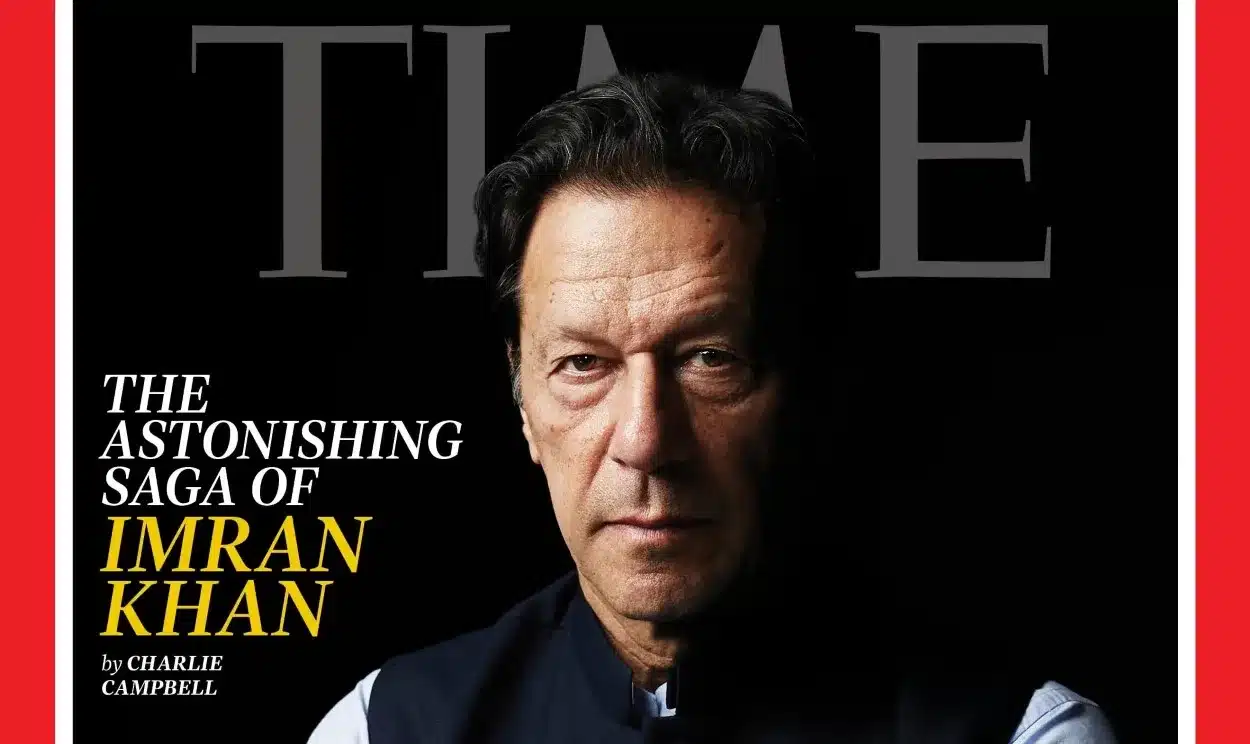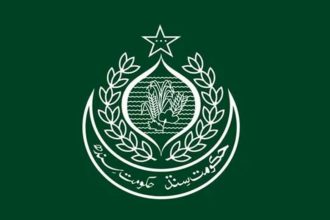Time Magazine recently published a cover story on former Pakistani Prime Minister Imran Khan, displaying his portrait and the caption “The Astonishing Saga of Imran Khan.”
The article grabbed the attention of PTI leaders, including ex-information minister Fawad Chaudhry, who shared the cover on Twitter.
Imran Khan’s Political Journey
Like many Western magazine articles, it offers a balanced analysis of Imran Khan’s political journey, encompassing praise, criticism, and predictions for Pakistan’s future. In addition, time Magazine conducted a Zoom interview with Khan, incorporating quotes throughout the piece to illustrate his accomplishments, shortcomings, and prospects.
Imran Khan’s political journey has been fascinating, marked by determination, resilience, and controversy. Born on October 5, 1952, Imran Khan is a former cricket superstar turned politician who served as the 22nd Prime Minister of Pakistan from August 2018 until April 2022.
Khan’s tenure as Prime Minister was marked by a mix of successes and challenges. He implemented various social welfare programs to alleviate poverty and improve education and healthcare. However, his government also faced criticism over economic mismanagement, high inflation, and rising debt.
Khan’s foreign policy approach included efforts to build stronger ties with China and Russia while navigating a complex relationship with the United States, particularly in the Afghan peace process and the role of the Taliban.
PTI Supporters React to Time’s Coverage
However, some of Khan’s supporters criticized the article and its author, Charles Campbell, for promoting a narrow, Western perspective on the Muslim world. PTI supporters called the piece “pathetic Orientalism” on Twitter.
In contrast, many of Khan’s supporters accused the article of “obfuscating facts and hiding disdain under a cloak of objectivity.” Conversely, PTI opponents emphasized the article’s attribution of Pakistan’s economic crisis to Khan’s actions.
The Time article gained traction online, with thousands of PTI supporters engaging with it. Despite this backlash, the article underscored Khan’s belief that elections are the key to resolving Pakistan’s political turmoil and starting its economic recovery. However, it also noted that the country’s limited foreign reserves suggest that elections alone cannot solve the crisis.
The article, published just before the Supreme Court rejected an Election Commission order to delay elections in Punjab and KP, spurred debates on Pakistan’s political future.
The discussions centered on implementing the Supreme Court’s verdict, the army’s role, and potential US support. The article concluded by addressing Khan’s misattribution to his government’s fall to the US, his support for the Taliban, and his efforts to forge closer ties with Russia and China, all of which put him at odds with the Biden administration.






